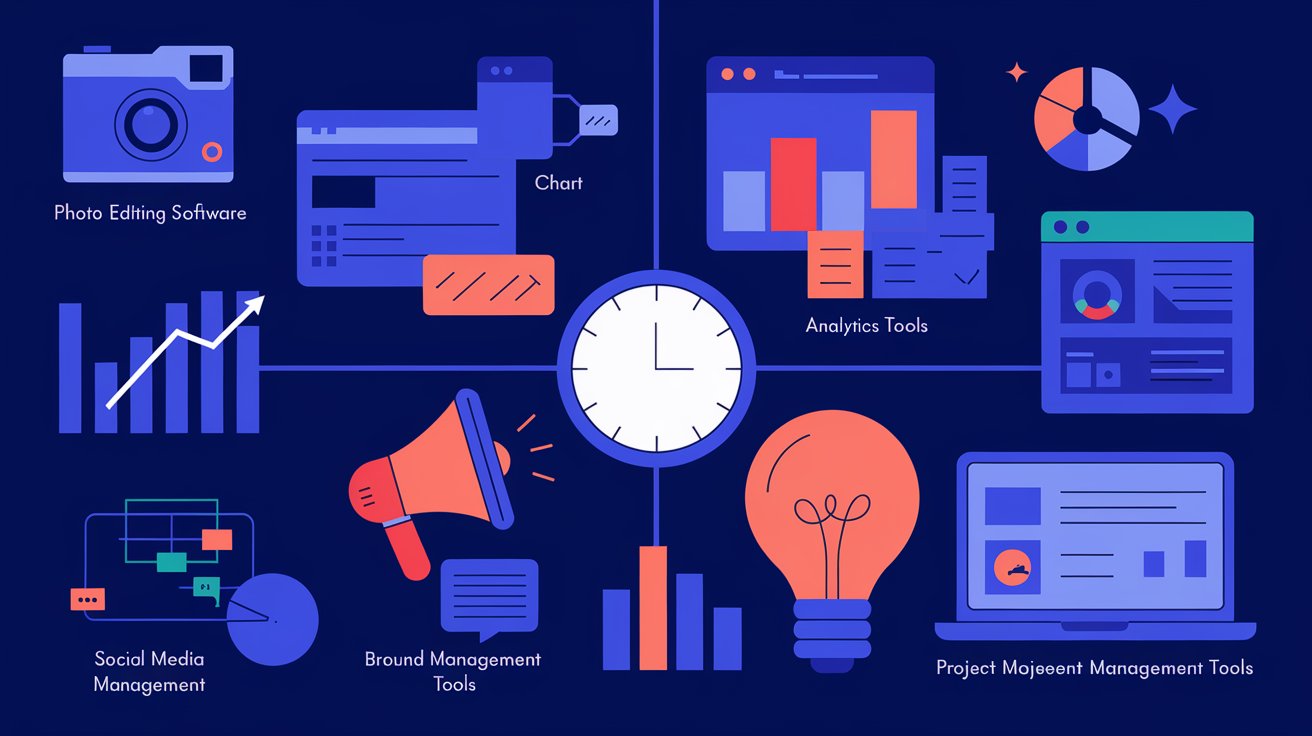SaaS marketing is a dynamic field, continuously evolving as new trends and technologies emerge. However, certain strategies have proven their resilience over time, consistently driving results for SaaS businesses. These time-tested techniques remain foundational, even as the industry grows and changes. Whether you’re a startup or an established SaaS company, integrating these classic marketing approaches into your strategy can help you attract and retain customers, build brand authority, and drive growth. Below, we’ll explore 11 SaaS marketing strategies that never go out of fashion, and why they continue to work year after year.
1. Content Marketing: The Foundation of SaaS Success
Content marketing remains a cornerstone of SaaS marketing strategies. High-quality content attracts, educates, and converts potential customers at every stage of the funnel. From blog posts and guides to whitepapers and case studies, content marketing helps SaaS companies establish authority, build trust, and demonstrate value. It’s not just about generating traffic; content marketing is about driving conversions by answering key questions and addressing pain points.
Why It Endures: Content marketing adapts easily to changes in technology and consumer behavior. It allows SaaS companies to connect with their audience through a variety of formats, including text, video, and interactive content. When executed correctly, content marketing fosters long-term relationships with customers and positions your brand as a thought leader in the industry.
2. SEO Optimization: Ranking for Relevance
Search engine optimization (SEO) has been and remains a fundamental SaaS marketing strategy. By optimizing your website and content for relevant keywords, you can drive organic traffic from search engines like Google. For SaaS companies, ranking for industry-specific terms can lead to a steady stream of qualified leads. SEO helps to position your brand in front of potential customers exactly when they are searching for solutions to their problems.
Why It Endures: The principles of SEO—keyword research, on-page optimization, and link-building—continue to be effective even as search engine algorithms evolve. SEO remains a powerful tool for SaaS companies to increase visibility, credibility, and authority in a crowded market.
3. Free Trials and Freemium Models: Letting the Product Sell Itself
Offering free trials or a freemium model is a proven tactic in SaaS marketing. By allowing potential customers to experience your product firsthand without any financial commitment, you lower the barrier to entry and demonstrate the value of your solution. Free trials give users a taste of what they can expect, while freemium models offer a baseline version of the product with the option to upgrade for premium features.
Why It Endures: SaaS products often have complex functionalities that are best understood through direct use. By offering free access, you encourage prospects to explore your platform, which can lead to increased conversions once they see the benefits in action.
4. Email Marketing: Personalization at Scale
Email marketing remains one of the most cost-effective ways for SaaS companies to engage with potential customers and nurture leads. Through personalized email campaigns, you can provide targeted content, product updates, and special offers to keep your audience engaged. Drip campaigns, in particular, allow you to nurture leads over time by delivering a series of emails designed to educate and persuade.
Why It Endures: Email marketing offers the ability to communicate directly with your audience on a personal level, while also being scalable. Automation tools make it easier than ever to segment your list and tailor your messaging based on user behavior and preferences.
5. Customer Testimonials and Case Studies: Building Trust Through Social Proof
Social proof is a powerful motivator, and customer testimonials and case studies are excellent tools for leveraging it. Potential customers are more likely to trust your brand if they see that others have successfully used your product. Case studies provide in-depth examples of how your SaaS solution has solved specific problems for real clients, offering concrete evidence of your product’s value.
Why It Endures: Trust is a critical factor in the decision-making process, especially for SaaS products that require a significant commitment. Testimonials and case studies build credibility and provide reassurance to potential buyers that your product delivers on its promises.
6. Referral Programs: Harnessing the Power of Word of Mouth
Referral programs incentivize your current customers to spread the word about your product. By offering rewards for referrals, you can encourage your satisfied users to become advocates for your brand. This type of word-of-mouth marketing is highly effective because it comes from a trusted source—someone who has firsthand experience with your product.
Why It Endures: People trust recommendations from their peers more than traditional advertising. Referral programs tap into this trust by turning your existing customers into promoters, driving new sign-ups and increasing your customer base with relatively low acquisition costs.
7. Paid Advertising: Targeting High-Intent Audiences
Paid advertising, whether through search engines (PPC) or social media platforms, allows SaaS companies to reach highly targeted audiences. By bidding on relevant keywords or creating targeted ads for specific demographics, you can drive traffic and conversions from users who are actively searching for solutions like yours.
Why It Endures: Paid advertising provides immediate visibility and results, especially when you need to scale your marketing efforts quickly. With robust targeting options, SaaS companies can ensure their ads are seen by the right people at the right time, making it a valuable tool for customer acquisition.
8. Webinars: Engaging and Educating in Real-Time
Webinars are a popular way for SaaS companies to connect with their audience, offering value through live, interactive presentations. Webinars allow you to showcase your product, provide expert insights, and answer questions in real-time, creating a more personal connection with potential customers.
Why It Endures: Webinars provide an opportunity to engage with your audience in a way that’s both informative and interactive. They help position your brand as a leader in the industry and can drive qualified leads who are ready to take the next step.
9. Affiliate Marketing: Expanding Your Reach Through Partnerships
Affiliate marketing involves partnering with individuals or businesses who promote your SaaS product in exchange for a commission. This strategy helps you reach new audiences by leveraging the networks of your affiliates, who can introduce your product to their followers or customers.
Why It Endures: Affiliate marketing allows you to expand your reach without significantly increasing your marketing spend. It’s a win-win situation where both you and your affiliates benefit from successful conversions.
10. Influencer Marketing: Leveraging Industry Experts
Influencer marketing involves partnering with industry experts or thought leaders who can promote your SaaS product to their audience. By aligning with influencers who are respected in your niche, you can build credibility and reach a broader audience that trusts the influencer’s recommendations.
Why It Endures: Influencer marketing taps into the power of authority and trust. When an industry expert endorses your product, their followers are more likely to take notice and consider your solution.
11. Retargeting Campaigns: Reengaging Interested Prospects
Retargeting campaigns involve showing ads to users who have previously visited your website but did not convert. These campaigns help keep your brand top-of-mind for potential customers, encouraging them to return and complete their purchase.
Why It Endures: Retargeting ensures that you don’t lose out on potential customers who showed interest but weren’t ready to convert. By staying in front of these prospects, you increase the likelihood of bringing them back to your site and turning them into paying customers.
Best Practices for Timeless SaaS Marketing Success
Here are six best practices for implementing the evergreen strategies discussed above:
- Consistency is Key: Whether it’s content marketing or email campaigns, consistency helps build trust and keeps your brand top-of-mind. Establish a regular publishing schedule and stick to it.
- Leverage Data-Driven Insights: Track and analyze performance metrics for your marketing efforts. Use these insights to refine your strategies, optimize campaigns, and focus on what works best for your audience.
- Personalize the Experience: Tailor your marketing messages to different audience segments based on their behavior, preferences, and position in the buyer journey. Personalized marketing leads to higher engagement and conversion rates.
- Prioritize User Experience: From your website’s layout to your free trial onboarding process, user experience plays a huge role in conversion. Ensure that every interaction a potential customer has with your brand is seamless and positive.
- Foster Customer Relationships: Build long-term relationships with your customers through ongoing engagement. Regularly update them with valuable content, new features, and opportunities for feedback.
- Focus on Long-Term Growth: While short-term tactics like paid ads can drive immediate results, it’s important to invest in long-term growth strategies like content marketing and SEO that build sustainable success over time.
Future Implications for SaaS Marketing
As SaaS marketing continues to evolve, future trends will likely center around increased personalization and automation. AI-driven tools will play a bigger role in creating hyper-personalized content and email campaigns, helping companies deliver tailored experiences at scale. Additionally, the rise of privacy concerns may lead to more transparency in data collection practices, forcing SaaS companies to build even deeper trust with their customers. Companies that stay ahead of these trends, focusing on delivering genuine value while respecting user privacy, will be best positioned for success in the future. The key challenge will be balancing technological advancements with maintaining a human touch in customer interactions.
Checklist for Implementing SaaS Marketing Strategies
☐ Define Clear Buyer Personas: Understand your ideal customers, their needs, and their challenges to create targeted marketing messages.
☐ Develop a Content Calendar: Plan and schedule your content to ensure consistency and relevance.
☐ Optimize for SEO: Regularly update your website and content for SEO to ensure you’re ranking for the right keywords.
☐ Create a Free Trial or Freemium Offering: Design a compelling offer that lets potential customers experience your product firsthand.
☐ Segment Your Email List: Tailor your email campaigns to different audience segments based on their interests and behavior.
☐ Collect and Share Customer Testimonials: Regularly update your testimonials and case studies to keep your social proof fresh.
☐ Launch a Referral Program: Incentivize your current customers to refer new clients with rewards and recognition.
☐ Host Regular Webinars: Use webinars to engage your audience, showcase your product, and provide expert insights.
☐ Implement Retargeting Campaigns: Set up retargeting ads to bring back users who visited your site but didn’t convert.
☐ Monitor and Optimize Campaigns: Continuously track the performance of your marketing efforts and make data-driven adjustments for improvement.
Thought-Provoking Questions
- How well do you understand your customers’ pain points, and how does that understanding shape your content strategy?
- Are you leveraging data effectively to refine your marketing efforts, or are you making decisions based on assumptions?
- How can you improve the personalization of your marketing campaigns without compromising user privacy?
- Is your free trial or freemium model converting leads into paying customers effectively, and if not, why?
- What role does social proof play in your marketing, and how can you increase the visibility of customer success stories?
- How can you balance short-term tactics like paid ads with long-term strategies like content marketing and SEO for sustained growth?
- In what ways can AI and automation enhance your SaaS marketing efforts without losing the human touch in customer interactions?
By reflecting on these questions, you can dive deeper into your SaaS marketing strategies and uncover areas for improvement or innovation.



